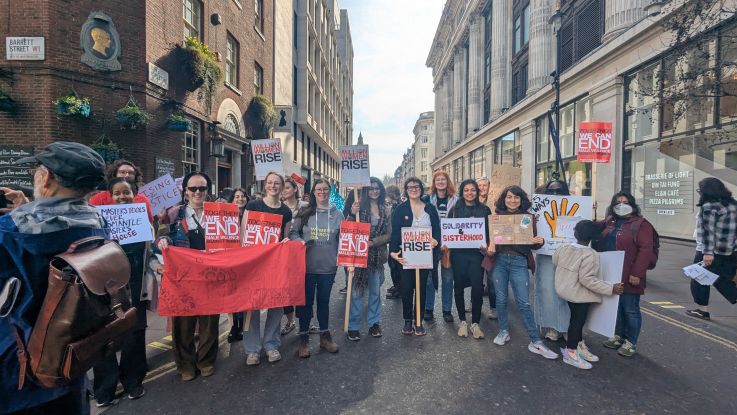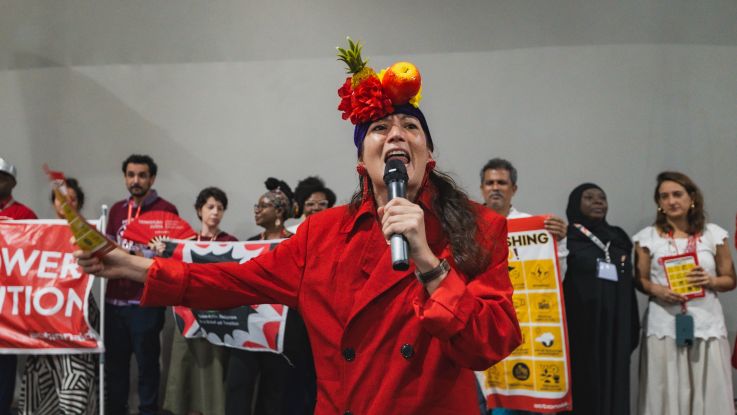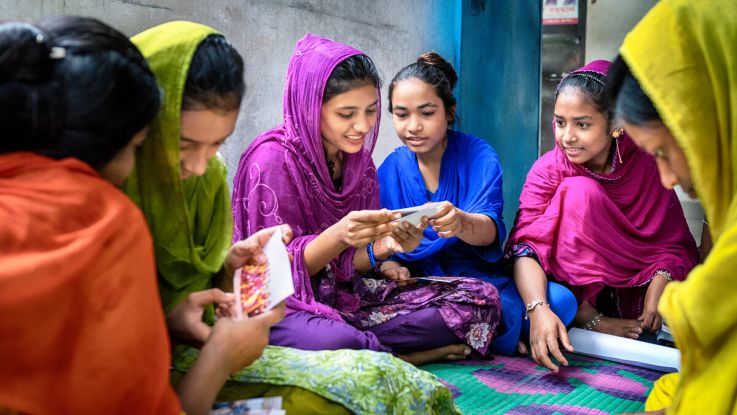25 years of Women, Peace and Security: what, exactly, are we celebrating?
30 October 2025
It has been 25 years since the adoption of UN Security Council Resolution 1325, the foundational document of the Women, Peace & Security (WPS) agenda. WPS emerged from a bold feminist demand: women must not be invisible in war or in peace, so what impact has it made over the last quarter of a century?
This month marks 25 years since the adoption of UN Security Council Resolution 1325, the foundational document of the Women, Peace & Security (WPS) agenda.
For many, this milestone invites reflection and recommitment. But from where we stand, it is difficult to celebrate.
Women, Peace and Security today
WPS emerged from a bold feminist demand: women must not be invisible in war or in peace. The agenda called for protection in conflict, meaningful inclusion in peace processes and recognition of women as leaders in shaping their communities’ security. It has influenced advocacy, reshaped global frameworks and informed national and local action.
The reality on the ground tells a different story: we are living in a time where the world is more fragmented than ever. We are seeing conflicts and wars rise, authoritarianism tightening control over civil society and a shrinking civic space, and an increase in displacement and gender-based violence. And despite this, ODA funding for feminist humanitarian and peace-building work is being cut, diverted into securitisation and domestic politics.
In Myanmar, Palestine, Ethiopia, Ukraine and beyond, the promise of WPS too often remains just that: a promise.
As international actors step back, women’s organisations step in. In Northern Uganda, women-led groups are driving reintegration, challenging stigma and sustaining grassroots peace-building, even as survivors of displacement and violence are marginalised. In Colombia, feminist organisations are reshaping peace in territories long scarred by conflict, confronting state neglect and corporate abuses along the way. Our work in Myanmar, Ethiopia, and Palestine shows the same pattern: women are doing the work of peace every day, while being denied the resources, recognition and protection they need.
The cruel irony of this anniversary
While governments gather in capitals like New York this October, many of the women leading this work cannot be in the room. Visa denials, travel restrictions and security threats shut the door before they even reach the threshold. The WPS agenda has not stalled for lack of vision. It has stumbled on implementation, as inclusion has been tokenistic and funding, remains sporadic and small.
So it begs the question: with the 25th anniversary, whose security is being discussed, or recognised as a milestone? Are the women and children sleeping in bunkers part of these conversations? The women giving birth under rubble? The survivors carrying generational trauma?
Too often, the answer is no.
Civil society is sidelined, and peace is defined through a narrow, Western, institutional lens - summits, timelines, meeting reports, rather than the daily struggle for safety, dignity and justice. In too many places, “peace” is declared while violence mutates into new, quieter forms. Security and peace are too often defined through militarised assumptions, with powerful actors defining it as borders held, insurgencies suppressed and geopolitics preserved.
Is this the security and peace that everyone demands?
For women, peace can be seen as rebuilding homes and communities. It means freedom from violence. It means health care, access to land, access to education and livelihoods. Peace is not a policy document; it is survival and justice.
If this anniversary is to matter, it must mark a real turn: one that channels flexible, multi-year funds directly to women’s organisations, including informal groups in hard-to-reach areas. One that protects civic space and shifts power so that women peacebuilders set the agenda. And one that redefines peace and security to measure success by reduced violence, access to services and community wellbeing, not military metrics or state-centric priorities.



